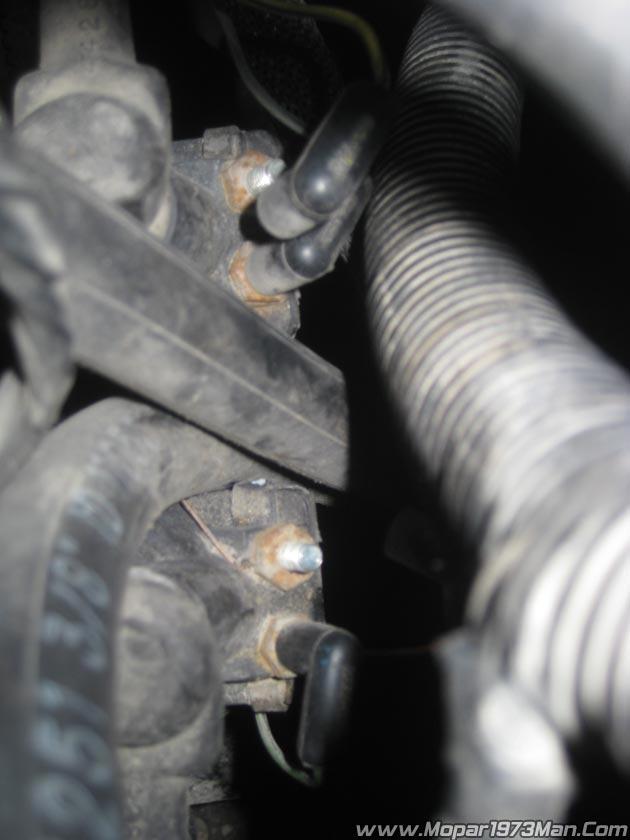Operation
At the time you turn the ignition key to the ON position the PCM/ECM looks at the IAT (Intake Air Temperature) temperature and determines if the manifold is cold enough to need pre-heating. Typically this occurs when temperatures are below 55-65*F. You'll notice that the battery voltage will fall slightly more than normal during this time that the WAIT TO START light is lit. Once started the grid heater will continue to cycle on and off to maintain proper manifold temperature. There are 2 grid heater elements. The PCM/ECM will determine if one or both elements will be used.
Here are the times and temperatures you should see.
|
Intake Manifold Temperature Key ON position |
Pre-Heat Cycle Time |
Post-Heat Cycle |
|
Above 59F (15C) |
0 Seconds |
No |
|
15F to 59F (-10C to 15C) |
10 Seconds |
Yes |
|
0F to 15F (-18C to -10C) |
15 Seconds |
Yes |
|
Below 0F (-18C) |
30 Seconds |
Yes |
When temperatures are below 0*F it’s suggested to cycle the grid heater twice to help aid in starting. Block Heater use can offset intake temperatures, since the block will warm incoming air.
Grid Heater(s) - Power Requirement
|
1 Element |
2 Elements |
|
95 Amps |
190 Amps |
|
1140 Watts |
2280 Watts |
Starter – Power Requirement
350-700 Amps
(Depends on temperature and oil viscosity)
Alternator Output
120 Amps
As in anytime you start the vehicle and grid heaters are active it will take longer to recharge the batteries. So be sure to run the engine longer to ensure the batteries are charged back up. Typically about 10-15 miles is a enough distance to re-charge the batteries in arctic cold temperatures.
Both grids on will provide a heating temperature of 500F as proved in the video.
When the grids heater(s) are running, you can tell when both or just one grid is running. You hook a voltmeter up to any point on the truck and measure exact voltage. In the video, you can see voltage drops to 11.75V, indicating that both grid heaters are running. When the voltage slightly releases to 12.20V, one of the grid heaters has stepped out. That grid heater then also steps out and regular charging voltage of over 13V is seen. Only one grid heater is needed after the initial dual grip operation to keep intake temperature up, so then you can see only one grid turning on and off with every time it drops to 12.4V.
Driving at low speeds can make the grid heater stay on seemingly endlessly as the cold air is driven into the engine at a high rate with the grids failing to heat it up to the temperature that the grid heater(s) turn back off. You have to get the RPM and engine load just right, it also has to be during the state that you haven’t turned the grid heater cycling phase off (going over 20mph). Basically, you might be going 15mph up a hill and the grid heater will cycle on and instead of turning off the next second like normal, the threshold temp is never met and the grid will stay on for a seemingly endless time. Like I said, the conditions have to be perfect in order for it to do it. Just an interesting tidbit.. It is surely hard on the alternator and batteries.
The grid heaters will then shut down when you go over about 20mph, retain sufficient intake temperatures, or shut the engine back off. The grids typically run about 3 minutes while idling, cycling on and off to maintain temperature, and finally canceling the cycles.
Grid Heater Relays

There are 2 grid heater relays, one for each grid heater. Each are ran by the ECM individually. The green wire on each of them is ground. The yellow and red wires are for each unique relay and serve as the positive lead that goes to the ECM. Upon being sent positive voltage, the relay energizes and the grid heater turns on.




There are no reviews to display.